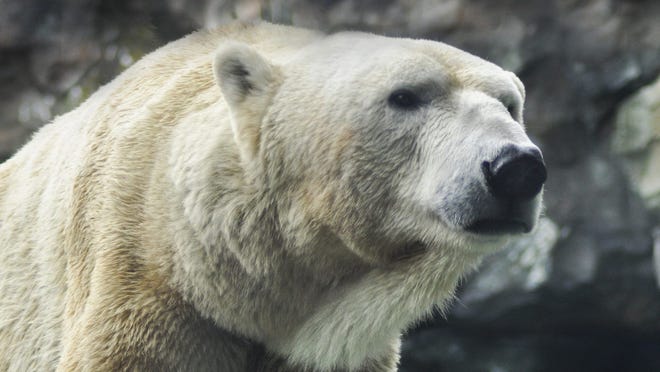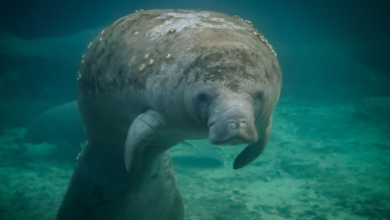
The Cincinnati Zoo & Botanical Garden says it is mourning the death of a male polar bear named “Little One” today.
The zoo said in a news release that it “humanely euthanized” Little One due to renal failure and a rapid decline in his health and quality of life.
At 31 years old, the zoo said, he was the oldest male polar bear in the U.S. zoo population.
As sad as Little One’s keepers are to lose him, the special geriatric care they provided allowed him to outlive the median life expectancy for a male polar bear by 10 years, the Cincinnati zoo said.
'Saying goodbye is always hard'
“Over my 30-plus year career, I’ve had the privilege of caring for 17 polar bears in two zoos. All of them have been amazing animals to care for,” head bear keeper Lisa Vollmer said in the news release.
“Saying goodbye is always hard, and it was especially hard with Little One. He was one of the most easygoing bears I’ve ever worked with and had a great disposition.
“His passing leaves a huge hole in hearts of all of us who cared for him,” she said.
Little One was born at the Cleveland Zoo to parents Snowball and Nauyat on Dec. 13, 1989, and came to Cincinnati in 2007.
Despite being matched with several females over the years, he never sired offspring. He did, however, inspire millions of zoo visitors to care about his species, the zoo said.
The most recent International Union for Conservation of Nature report estimates that there are 26,000 polar bears left in the wild and lists the marine mammal as a vulnerable species, citing loss of Arctic sea ice due to climate change as its most serious threat.
Polar bears are one of four signature projects at the zoo’s Lindner Center for Conservation and Research of Endangered Wildlife.
Its scientists have established methodologies for semen collection and cryopreservation and performed the world’s first polar bear artificial insemination in 2012.
Source link







